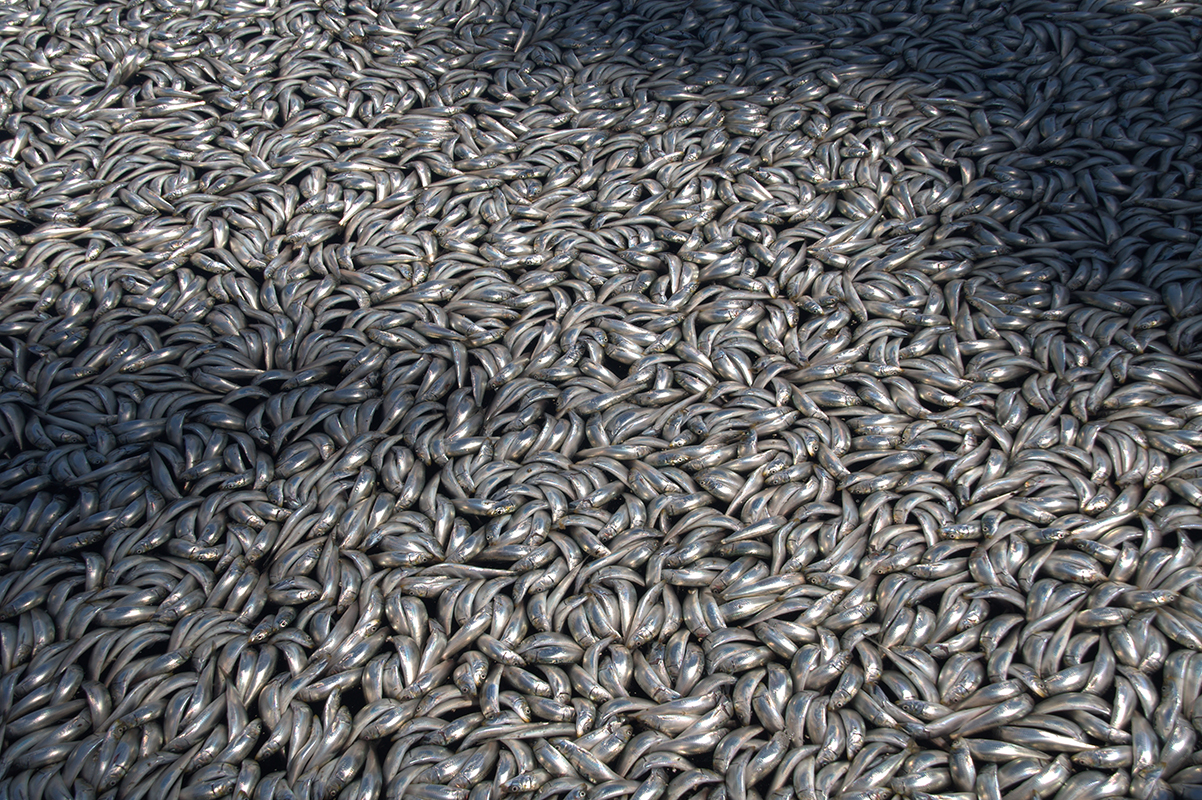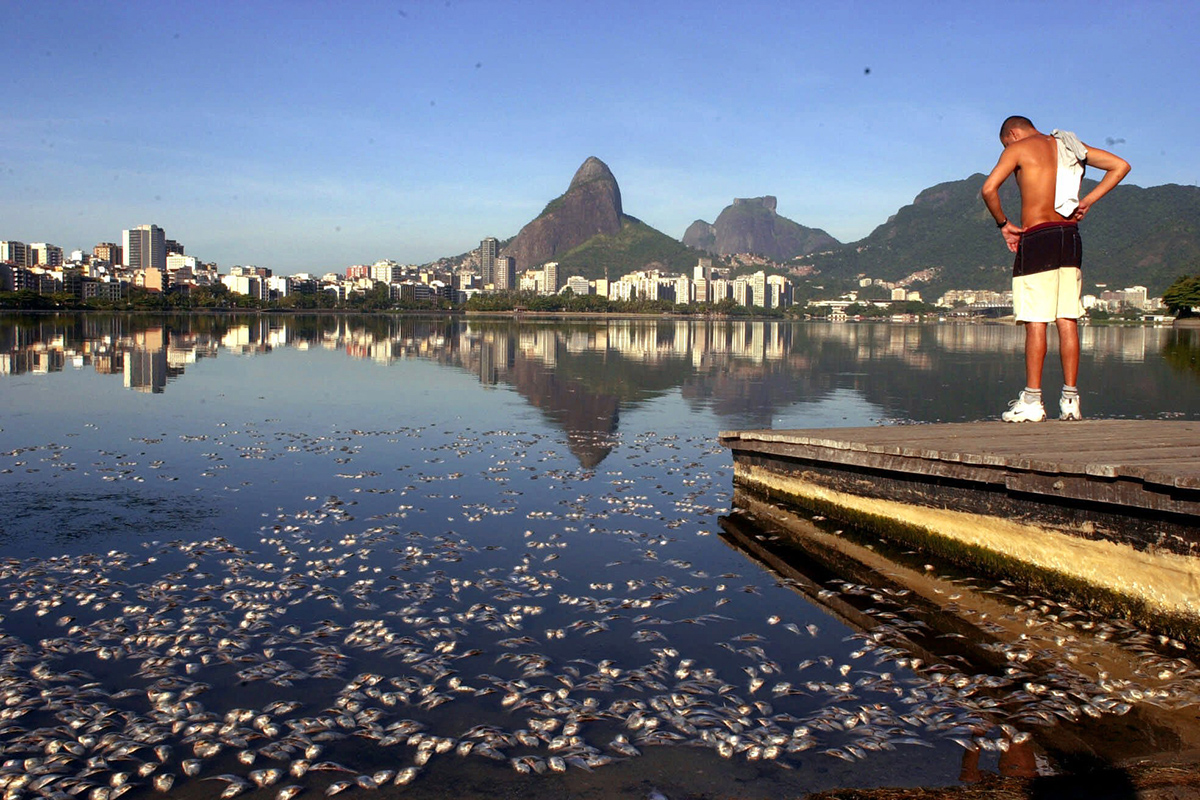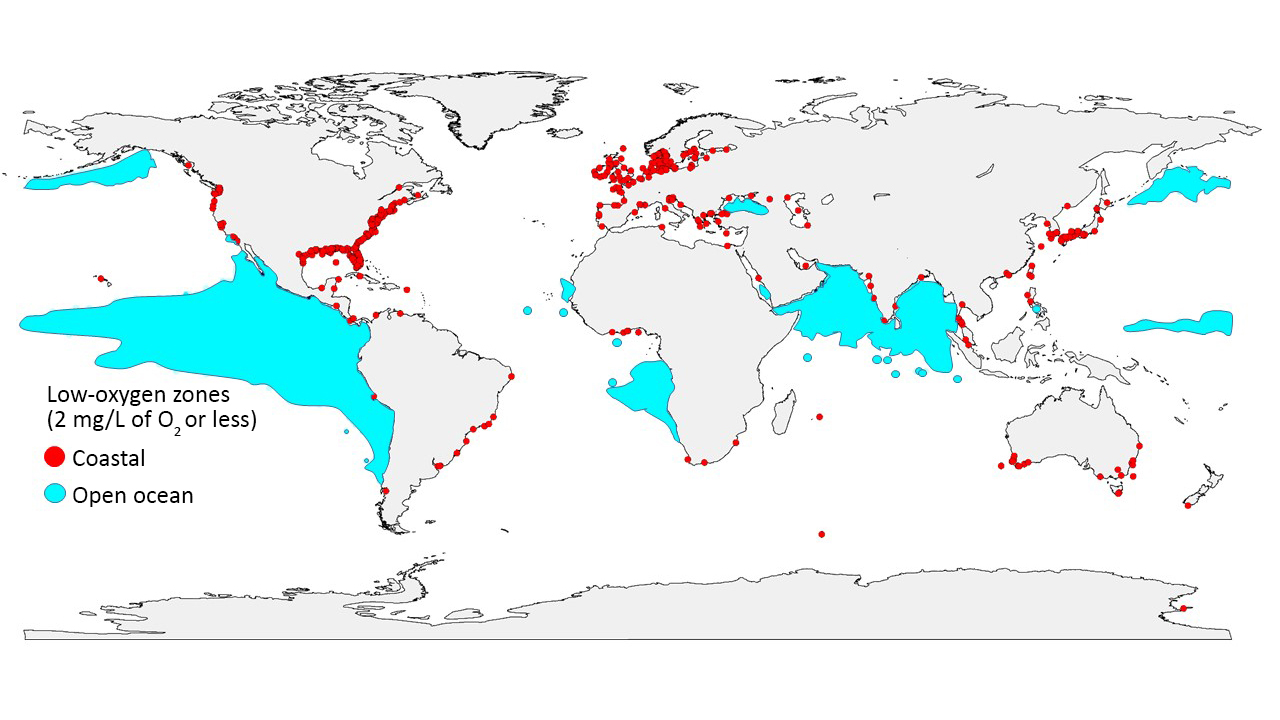The Ocean Is Suffocating, and It's Our Fault

Ocean "dead zones" — regions of the sea where oxygen is severely or entirely depleted and most forms of life can't survive — are becoming more numerous, and scientists warn that they will continue to increase unless we curb the factors driving global climate change, which is fueling this alarming shift in ocean chemistry.
Even outside these near-lifeless ocean regions, rising global temperatures and influxes of nutrient pollution are throttling oxygen levels in the open ocean and in coastal areas, threatening communities of sea life around the world.
This sobering view of the "suffocating" ocean was described in a new study, published online today (Jan. 4) in the journal Science. The study is the first to present such a comprehensive evaluation of ocean oxygen depletion and its causes. And less oxygen in the ocean doesn't just spell trouble for marine plants and animals — it could carry serious repercussions for life on land as well, the researchers cautioned. [Doomsday: 9 Real Ways Earth Could End]
While water molecules contain oxygen atoms, liquid water must also contain dissolved oxygen in order for fish and other organisms to breathe. Oxygen-deprived dead zones were first identified in estuaries — bodies of water where rivers flow into the sea — in the mid-19th century, and their oxygen depletion was linked to the presence of urban sewage in the water, lead study author Denise Breitburg, a marine ecologist with the Smithsonian Environmental Research Center, told Live Science in an email.
Since then, growth of industrial and agricultural activity has disrupted the ocean's chemical balance, with regions in many areas worldwide becoming infused with pollutants and nutrients that starved the water of oxygen. Meanwhile, rising global temperatures hamper oxygen's solubility in water and restrict its distribution into the deeper ocean. At the same time, some forms of marine life have grown increasingly stressed due to warmer and more acidic oceans, which increases their oxygen requirements.
A global investigation
A team of scientists from the Global Ocean Oxygen Network, a group formed by the United Nation's Intergovernmental Oceanographic Commission in 2016, conducted the investigation, and they found that the toll on Earth's oceans has been significant.
Over the past 50 years, the ocean suffered a loss of about 85 billion tons (77 billion metric tons) of oxygen, affecting an accumulated area approximately the size of the European Union. Globally, the amount of zero-oxygen ocean water has quadrupled, while the area occupied by low-oxygen zones has increased by 10 times, the researchers discovered. In coastal areas and seas that are semi-enclosed, once low-oxygen conditions are established, they can persist for thousands of years, according to the study.
Get the world’s most fascinating discoveries delivered straight to your inbox.
"If we lost 4.5 million square kilometers of productive area on land, everyone would be appalled," Breitburg said in a statement. "But what happens beneath the surface of the ocean is out of sight, and easy to either not notice or ignore."
As oxygen levels in water drop, the behavior and growth of fish and other ocean organisms is affected — a lack of oxygen can make them more susceptible to disease, or make it more difficult to reproduce. In extreme cases, they can suffocate. While certain types of microorganisms thrive under low oxygen conditions, most larger forms of sea life either die or abandon oxygen-starved waters, invading nearby ecosystems where they may upset the balance of life, disrupt food webs or increase their vulnerability to predators, the study authors explained.
Restoring oxygen
In some cases, evidence shows that the damage can be reversed, and areas where nutrients and sewage had sucked oxygen from the water may yet recover once the flow of contaminants is removed, Breitburg told Live Science in an email.
For example, parts of the Thames Estuary in London and the Delaware River Estuary — both of which endured long periods with no oxygen and no fish — "are now much improved and host vibrant fish communities," Breitburg said.
And in Massachusetts' Chesapeake Bay — long known for dead zones that seasonally cover about 30 percent of its area — nitrogen pollution levels have decreased by 24 percent, a result of improved farming practices and sewage management, and better air quality under regulations such as the Clean Air Act, according to the study.
However, when it comes to oxygen loss in the open ocean, "we’re in uncharted territory," Breitburg said. "We don't know how long it will take for the ocean to respond."
Addressing this global issue will require worldwide cooperation and initiatives to mitigate fossil fuel emissions and curb nutrient pollution. Establishing more protected areas in the ocean and supporting policies that preserve threatened and vulnerable marine life will also help struggling ecosystems recover, the study authors reported.
"Slowing and ultimately halting the decline of oxygen in the open ocean, and oxygen decline in coastal waters that is due to climate change, will take a global effort, but it needs to be done — not only to improve oxygen in the ocean, but to avoid the worst of the devastation that global warming can cause," Breitburg said.
Original article on Live Science.

Mindy Weisberger is a science journalist and author of "Rise of the Zombie Bugs: The Surprising Science of Parasitic Mind-Control" (Hopkins Press). She formerly edited for Scholastic and was a channel editor and senior writer for Live Science. She has reported on general science, covering climate change, paleontology, biology and space. Mindy studied film at Columbia University; prior to LS, she produced, wrote and directed media for the American Museum of Natural History in NYC. Her videos about dinosaurs, astrophysics, biodiversity and evolution appear in museums and science centers worldwide, earning awards such as the CINE Golden Eagle and the Communicator Award of Excellence. Her writing has also appeared in Scientific American, The Washington Post, How It Works Magazine and CNN.




